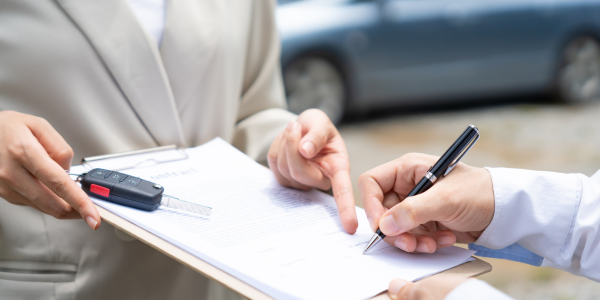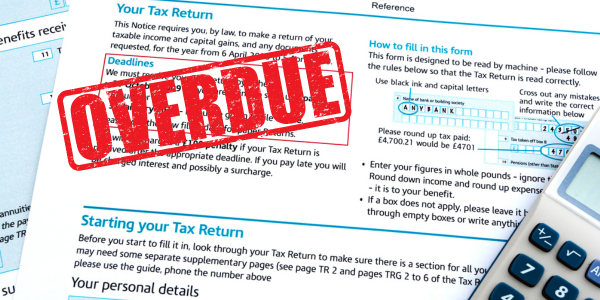Paying HMRC – A Complete Guide to How to Pay HMRC Tax
In the tax year 2020/2021, HMRC collected £556bn in taxation receipts (Source: Statista.com). As always, the four largest contributors were:
- Income Tax
- National Insurance Contributions (NICs)
- VAT
- Corporation Tax.
Here we look at how to pay HMRC tax, covering these four main areas. You can also find more details from the government’s website at gov.uk/paying HMRC
Paying HMRC – How to pay HMRC
| How to pay HMRC | Online banking | Telephone banking | CHAPS | Corporate debit or credit card (online) | At bank or building society | BACS | Direct Debit | Cheque (by post) | Through employer |
| Income Tax | |||||||||
| Self Assessment | ✓ | ✓ | ✓ | ✓ | ✓ | ✓ | ✓ | ✓ | |
| PAYE | ✓ | ||||||||
| NICS | |||||||||
| Class 1 | ✓ | ||||||||
| Class 2 | ✓ | ✓ | ✓ | ✓ | ✓ | ✓ | ✓ | ✓ | |
| Class 3 (Voluntary Contributions) | ✓ | ✓ | ✓ | ✓ | ✓ | ✓ | ✓ | ✓ | |
| Class 4 | ✓ | ✓ | ✓ | ✓ | ✓ | ✓ | ✓ | ✓ | |
| VAT | |||||||||
| ✓ | ✓ | ✓ | ✓ | ✓ | ✓ | ||||
| Corporation Tax | |||||||||
| ✓ | ✓ | ✓ | ✓ | ✓ | ✓ | ✓ |
Paying Income Tax
Income tax is paid either through PAYE or self-assessment. PAYE is administered by employers and is a central part of managing payroll. Employed staff do not usually have to supply further information, unless they are required to complete a self-assessment tax return (for example, if they have other sources of income or earn over £100,000).
Self assessment covers income not taxed at source, including earnings from self-employment, earnings as a director or income from renting property. Capital Gains Tax is also part of your self-assessment calculation, rising on the sale of assets, such as shares.
The deadline for completing a self assessment tax return is October 31st for paper returns, and January 31st for online returns, following the 5 April tax year end.
Self assessment – how to pay
You can use your self-assessment calculations to make next day payments to HMRC either through online banking, telephone banking, CHAPS, by credit or debit card (corporate cards only) or at your bank or building society (using a paying-in slip from HMRC). For payments within three working days you can use Bacs, direct debit, or a cheque by post.
Paying NICS
Paying National Insurance Contributions follows a similar pattern to paying Income Tax. Employees pay Class 1 NI Contributions on earnings over £184 per week (for 2021/22 tax year).
If you are required to submit a self-assessment tax return due to receiving self employment income, your NI contributions fall into Class 2 (profits threshold £6,515 for tax year 2021/22) and Class 4 (profits threshold £9,569 for tax year 2021/22).
How to pay HMRC NICS
Under PAYE, deductions for an employee’s NI are administered by the employer in the same way as income tax. For the self-employed, directors and individuals with other sources of income, NI contributions are paid alongside income tax, as calculated on their self-assessment returns.
NICS can be paid using the same options as self-assessment payments. In certain circumstances, it is advisable to make Class 3 voluntary NI contributions to ensure you are entitled to the full amount of state benefits, including the state pension. This is a separate payment which will be agreed directly with HMRC.
Paying VAT
If annual turnover exceeds £85,000, companies, partnerships, sole traders and charities have to be VAT registered, and have to charge VAT on the goods and services they sell. Once registered, you will receive a nine-digit VAT registration number.
The VAT rate is currently 20% (tax year 21/22) with the reduced rate of 5% on selected items such as child car seats and renewable energy. Food and children’s clothes are currently zero-rated for VAT.
VAT is included in the price for everything that a VAT registered enterprise sells. The tax is then recorded on a VAT Return which is usually submitted to HMRC every three months. The deadline for returns and payments is normally one calendar month and 7 days after the end of your VAT period. Your VAT return will show all sales of goods and services that include VAT payments.
How to pay HMRC VAT
When you need to pay HMRC VAT, how to pay presents you with a range of options.
For same day or next day payments you can use online or telephone banking, or CHAPS.
For payments in three working days, you can use direct debit, Bacs, corporate credit or debit card (nb you cannot use a personal credit card). You can also pay at your bank or building society. If you are registered for the Annual Accounting Scheme you can pay by standing order.
Remember, you must meet the deadline for each payment to reach HMRC to avoid a surcharge. Make sure the payment reaches HMRC on the last working day before weekends and bank holidays, unless you are paying by faster payments through telephone or online banking.
VAT exemptions
A range of products and services are exempted from VAT. The list of exemptions includes insurance, finance, education, training and charity fundraising.
CIS and VAT
Specific rules under the Construction Industry Scheme govern the payment of VAT for the building sector with deductions to protect revenue for HMRC. Builders, developers and other companies registered for CIS file monthly returns with HMRC, and HMRC then tells them how much VAT to deduct from sub-contractor payments. The amount deducted is then paid to HMRC via HMRC’s online service of commercial software such as Sage and Xero.
Paying Corporation Tax
Every company registered at Companies House has to pay Corporation Tax on annual trading profits. The deadline for payment is nine months and one day after the end of the relevant trading year, and the current rate is 19% (for tax year 2021/22).
How to pay HMRC Corporation Tax
Company tax returns are filed using HMRC Corporation Tax Company Tax Return (form CT600). The form is long, with nearly 1,000 fields to consider.
Knowing the amount of Corporation Tax to pay, you can pay using online or telephone banking using Faster Payments, or make same day payment by CHAPS. BACS, Direct Debits is another option, although payments will take three working days to clear.
Advice on paying HMRC from Perrys Chartered Accountants
Perrys Chartered Accountants, we have extensive experience of how to pay the right amount of tax due to HMRC. In addition to Income Tax, NICS, VAT and Corporation Tax, we also provide expert advice on Inheritance Tax, Trust Planning and Wills and Probate. We also guide clients through HMRC’s Making Tax Digital initiative and the Construction Industry Scheme.







